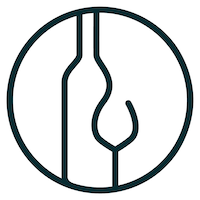
Onboarding is designed to help new employees get to know the company’s culture, values,
and expectations. Onboarding programs for new hospitality employees allow managers and
co-workers to provide a smooth transition and welcome new team members. Well-thought-
out onboarding programs also ensure new employees have the skills, knowledge, and
support to thrive in their new roles. Creating a successful onboarding program for new
hospitality employees is good for businesses and their employees.
The Benefits of Onboarding Programs in the Hospitality
Industry
Everyone in the business benefits from a successful onboarding program. New employees
will quickly familiarise themselves with their roles and responsibilities, thereby increasing
their productivity. A warm welcome gives new employees a sense of purpose and
belonging, which increases job satisfaction, confidence, and engagement. In fast-paced
industries like hospitality, onboarding can alleviate stress and anxiety by equipping new hires
with essential information, resources, and support systems.
Successful onboarding programs help businesses retain staff because new employees
receive immediate support. Companies with a high staff turnover lose money on recruitment
and training costs. With the necessary knowledge and skills, new employees can provide
positive customer experiences, which result in increased customer satisfaction and
loyalty.
Key Aspects of an Onboarding Program
Five key aspects to consider when creating your onboarding program are preboarding,
orientation, training, mentoring, and feedback. Preboarding refers to reaching out to new
employees before they start and providing them with any necessary information. Orientation
begins on the new employee’s first day, where they will learn about the company culture,
procedures, and policies, and meet key team members.
New employees will require role-specific training, and managers can also encourage cross-
training to broaden their skill sets. A mentor can help train new employees and answer their
questions. As new employees find their feet, providing them with ongoing feedback is critical
to ensure they can continue to improve and grow professionally. Assess their progress and
give them constructive feedback.
How To Create the Perfect Onboarding Program
Never underestimate the value of a well-planned onboarding program. Invest time in its
creation to ensure the success of both your new employee and the business.
Assess the Needs and Goals of the Business
Each hospitality business faces different challenges and organisational needs. Address
these and align the program with your overall mission, values, and objectives.
Monitor and Measure Success
With clear goals and objectives, a new employee’s performance can be assessed. Provide
them with learning objectives at each stage of the process and give them feedback to help
them improve.
Create an Onboarding Timeline
Hospitality is fast-paced, so onboarding must be efficient and thorough. Create a logical
timeline of tasks and allow flexibility to adapt to each new employee’s needs and learning
style.
Collaborate With Key Stakeholders and Tailor the Program
The onboarding process should be tailored to each role and each new employee. HR,
department managers, and experienced employees can offer valuable advice on the
program’s structure. Listen to their concerns to keep improving the onboarding process.
Allocate Resources and Budget
The cost of training and training materials must be considered. As each new employee joins,
they can all benefit from additional training to fill in any skills gaps.
Creating a successful onboarding program for new hospitality employees is worth the time
and effort. New hires are more productive, and staff turnover is reduced. Don’t forget that
ongoing training helps new and experienced employees grow in their roles and contribute to
the business’s success. No employee should stop learning after completing their onboarding
program.





